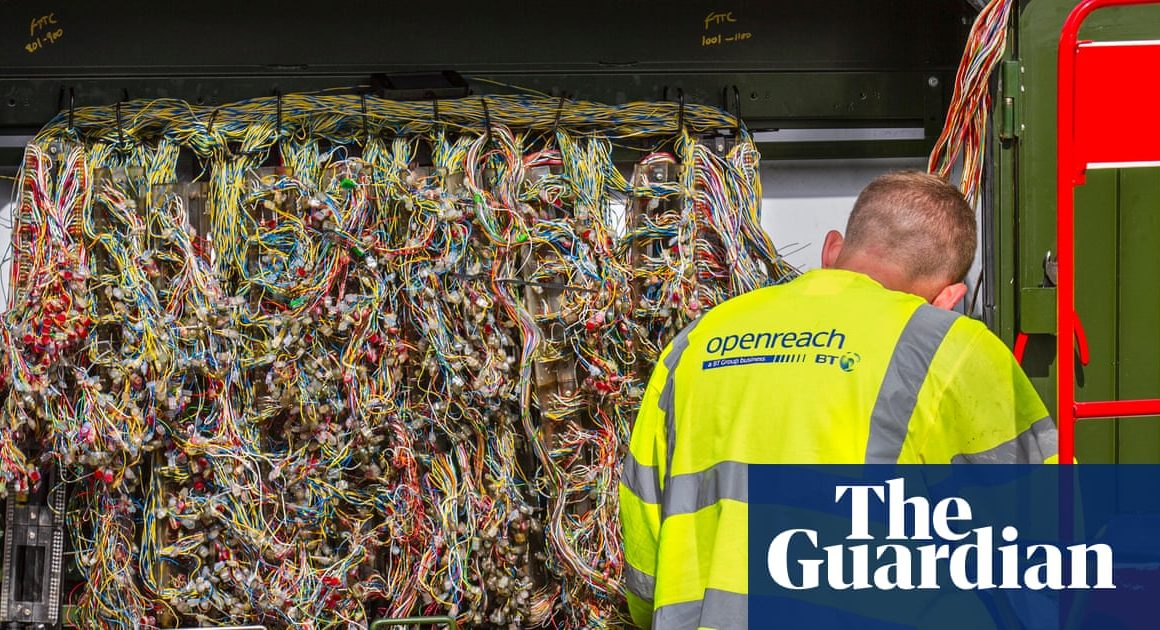Individuals causing disorder and rioting will have a “prison place waiting for them” the justice minister has said, as far-right violence continued in England and Northern Ireland for a seventh day on Monday.
Police officers were attacked and injured in Plymouth, Belfast and Darlington on Monday, with nearly 400 arrests made since the Southport stabbings a week ago, after which the riots began.
“We will make sure that anyone that is given a custodial sentence as a result of the riots and disorder, there will be a prison place waiting for them,” the justice minister Heidi Alexander told BBC Radio 4’s Today programme.
In response to the disorder, the government had introduced 567 additional prison places that were due to come forward at the end of the month, Alexander said.
The move comes weeks after the government announced the early release of thousands of prisoners who had served 40% of their sentence in England and Wales to solve a looming overcrowding crisis.
The new prison spaces will be in Stocken prison in Rutland and Cookham Wood young offender instituion in Kent, according to the justice minister.
“We are confident that prison spaces will be there so that people who are perpetrating this disgusting behaviour on our streets and in our communities it they’re given a custodial sentence they will be serving in jail,” Alexander said.
As disorder continued for a seventh day on Monday, Plymouth’s Labour councillor, Jemima Laing, described “a pretty grim” night in the port city in Devon after police officers were injured during “sustained violence”. Several officers sustained minor injuries and two members of the public were taken to hospital.
Laing said it was upsetting to see the city as a “stop on this racist tour that seems to be happening”. About 150 officers who were deployed to the city centre tried to keep rival demonstrations apart as masked anti-immigration protesters launched missiles at a counter-demonstration where people held signs that read “No place for hate” and “Say no to Nazis”.
“I’m just so angry that so many people from outside our city felt it was OK to come here and cause such disruption and unrest,” Laing told the Today programme.
“Last night’s events were not reflective of us as a city,” said Laing, laying blame on those from beyond the city who came to “cause trouble”. “It’s really not what Plymouths about.”
Devon and Cornwall police said six arrests were made in Plymouth after bricks and fireworks were launched at officers.
In Belfast, social media footage showed officers attacked with missiles in the Donegall Road and Sandy Row areas. The violence occurred in the same area where two businesses were attacked on Saturday.
An 18-year-old man has been arrested after bricks were thrown at police during violent disorder in Darlington on Monday evening, according to Durham police.
The force said dozens of officers were deployed to the North Lodge Park area after two large groups of men gathered shortly after 9pm. It said this resulted in “small pockets of serious violence, which saw bricks being thrown at police officers who attended the scene”.
More than two dozen people accused of taking part in violent disorder in England and Northern Ireland appeared in magistrates courts on Monday, after the government promised “swift justice”. Charges included violent disorder, assault, arson and resisting police arrest, with defendants ranging from 14 to 69 years old.
Neil Basu, the former head of UK counter-terrorism, said the disorder over the weekend that included rioters setting fire to a library, looting shops and storming hotels housing asylum seekers, should be treated as terrorism.
When asked whether charges should be tougher, Alexander said that was a matter for the Crown Prosecution Service.
“There have been a range of offences that will have been committed,” said Alexander, refraining from agreeing with Basu’s terrorism label for the disorder. “There have been serious offences which have undoubtedly been committed which will carry very significant jail terms.”
When asked how long the disorder is expected to continue, Alexander said while she did not have a “crystal ball”, the government would leave “no stone unturned” to bring the disorder to an end.
“We want to get this under control as quickly as possible because we can’t go on with what we’ve been seeing,” she said. “We’ve seen outright criminal behaviour, racist attacks, dangerous extremism and we will not tolerate that in our country.”










